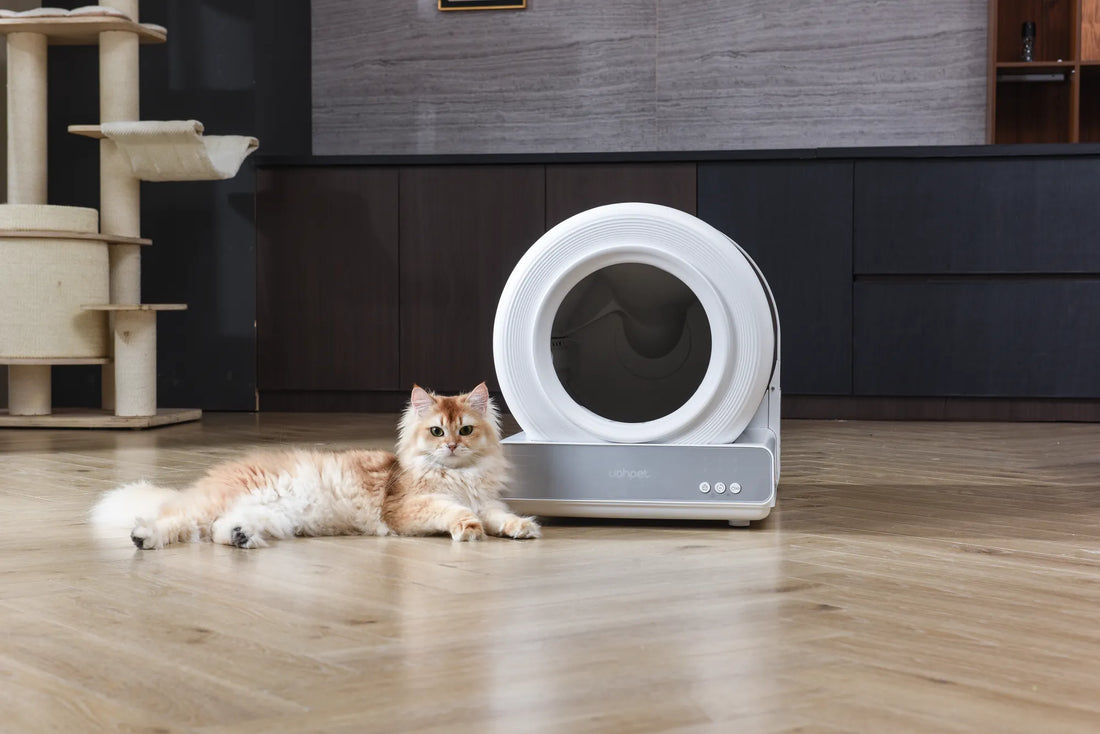If you've ever found yourself asking, 'Why does my cat pee outside the litter box sometimes?' you're not alone. This frustrating behavior can leave cat owners scratching their heads and wondering what went wrong. Understanding the root causes is essential to finding a solution and restoring harmony in your home.
Common Reasons for Inappropriate Urination
There are several reasons why your cat might choose to pee outside the litter box. These can range from medical issues to behavioral problems. Let's explore some of the most common causes.
Medical Issues
One of the first things to consider is whether your cat is experiencing a medical problem. Conditions such as urinary tract infections, bladder stones, or kidney disease can cause discomfort and lead to inappropriate urination. If your cat is suddenly peeing outside the litter box, a visit to the veterinarian is crucial to rule out any underlying health issues.
Stress and Anxiety
Cats are sensitive creatures, and changes in their environment can cause stress and anxiety. Moving to a new home, introducing a new pet, or even rearranging furniture can trigger this behavior. Providing a safe and comfortable space for your cat can help alleviate stress and reduce the likelihood of accidents.
Litter Box Preferences
Cats can be quite particular about their litter box. If the box is too dirty, too small, or located in a noisy area, your cat might avoid it altogether. Experimenting with different types of litter, box sizes, and locations can help you find a setup that your cat prefers.
How to Address the Problem
Once you've identified the potential cause of your cat's behavior, it's time to take action. Here are some steps you can take to encourage your cat to use the litter box consistently.
Visit the Veterinarian
If you suspect a medical issue, schedule a visit to the veterinarian as soon as possible. Early diagnosis and treatment can prevent the problem from worsening and help your cat feel more comfortable.
Create a Calm Environment
Reducing stress in your cat's environment can make a big difference. Provide plenty of hiding spots, vertical spaces, and quiet areas where your cat can retreat. Using pheromone diffusers or sprays can also help create a calming atmosphere.
Optimize the Litter Box
Make sure the litter box is clean, accessible, and appealing to your cat. Scoop it daily, change the litter regularly, and consider adding an extra box if you have multiple cats. Experiment with different types of litter and box styles to find what works best for your feline friend.
Preventing Future Incidents
Preventing your cat from peeing outside the litter box requires ongoing effort and attention. Here are some tips to help you maintain a litter box-friendly environment.
Monitor Your Cat's Health
Regular veterinary check-ups are essential to catch any potential health issues early. Keep an eye on your cat's behavior and look for any signs of discomfort or changes in urination habits.
Maintain a Consistent Routine
Cats thrive on routine, so try to keep their environment as consistent as possible. Avoid sudden changes and provide plenty of mental and physical stimulation to keep your cat happy and engaged.
Be Patient and Understanding
Addressing inappropriate urination can take time, so be patient with your cat. Avoid punishment, as it can increase stress and worsen the problem. Instead, focus on positive reinforcement and creating a supportive environment.
Understanding why your cat pees outside the litter box sometimes is the first step toward solving the problem. By addressing medical issues, reducing stress, and optimizing the litter box, you can help your cat feel more comfortable and prevent future accidents. With patience and persistence, you and your feline friend can enjoy a happier, cleaner home.













